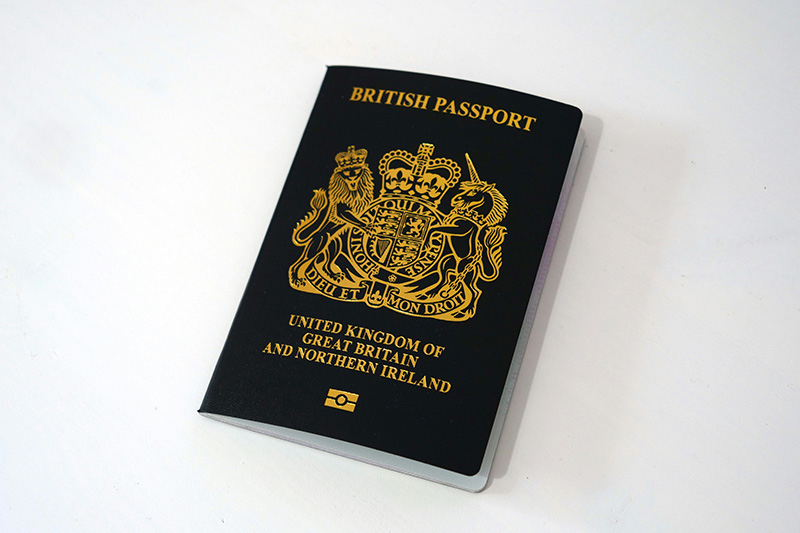Travelling abroad is one of the best adventures you’ll ever have. It’s really exciting to step off a plane into a place you’ve never seen, knowing you’re about to make memories you’ll talk about for years.
But before you pack your bag and grab your passport, it helps to know a few essential global rules. A small slip-up can kill the fun fast. For example, in Singapore, chewing gum can get you fined. In Germany, crossing the street wherever you feel like isn’t just frowned on—it’s actually illegal.
Knowing these things can save you trouble (and unexpected costs). A bit of prep now means you can actually enjoy the adventure when you get there. Let’s break it all down so you’re properly ready.
Documents You Absolutely Need
Paperwork might not be the most exciting part of your trip, but it’s what makes everything else possible. Here’s what to get sorted before you head off:

- Passport
Make sure it’s valid for at least six months after you get back. Even a small tear or damage can cause problems at the airport. - Visa
Some countries need a visa even if you’re only staying a few days. It’s always best to check early—the UK government’s foreign travel advice page tells you exactly what you’ll need, and if you’re going to the US, their traveller’s checklist is really clear and easy to follow. - Parental consent letter
If you’re under 18 and not travelling with both parents, you’ll need a letter saying they give permission. Even 16 or 17 year olds can be asked for this by airlines or immigration. It’s easier to get it ready ahead of time. Some countries will check the letter again when you leave. - Proof of relationship
If your surname is different from your parent’s or guardian’s, bring something that shows you’re related, like a birth certificate. This avoids long questions at the border. - School trip forms
If you’re travelling on a school trip, most of the forms will be organised by the school. But it’s still worth checking that everything has been signed and handed in so there aren’t any problems before you travel.
Once your documents are in order, it’s time to look at what else you’ll need to prepare before you go.
Staying Healthy and Safe
Paperwork isn’t the only thing to think about. You also need to look after your health and safety before you go. A bit of prep now saves you a lot of hassle later.
Vaccinations
Depending on your destination, you may need additional vaccinations, such as hepatitis A or typhoid. It's important to check these requirements early, as some vaccines may take time to become effective. You can find detailed information on necessary vaccinations for each country at NHS Fit for Travel.
Travel insurance
Lots of people think travel insurance isn’t that important, but it really helps when things go wrong—like if your luggage gets lost, or you need to see a doctor while you're away. These things can get expensive and turn into a real headache. So, it’s better to have insurance just in case. If you’re unsure what to get, Citizens Advice has some tips to help you choose.
Medication and travel rules
If you take regular meds or need to bring important medicine with you, it’s a smart move to pack a copy of your prescription and a note from your doctor saying what it’s for.

Some places, like Japan or the UAE have strict rules about what you can carry, and border officials may ask to see documentation. It's much easier to prepare in advance than deal with problems later. You can find clear advice on this in the NHS guide to taking medicine abroad.
Emergency contacts
It might not seem like a big deal, but keeping a copy of important phone numbers and key medical information with you is important. If you lose your phone, feel unwell, or need urgent help, this could be the quickest way for someone to contact your family or explain your condition.
Understanding Cultural and Legal Boundaries

Each place has its own little rules, and taking a bit of time to figure them out means you’ll avoid unwanted hassle and fit right in.
Here are some real-world examples to keep in mind:
- Japan: Keep your phone on silent when you’re on the train. If you talk loudly or take a call, people will definitely give you some serious stares, even if you didn’t realise it was a big deal. Japan even has a whole etiquette section on their tourism site—worth a look before you go.
- France: You’re required to carry ID with you at all times—even if you’re just popping out for a snack.
- Thailand: Never step on money. It’s illegal because the king’s image is on the currency, and it’s considered highly disrespectful.
- Singapore: Bringing chewing gum into the country without permission can lead to a hefty fine.
- Germany: Crossing the street while the pedestrian light is still red is taken seriously and can lead to a warning fine of €5. Even if the road looks clear, it’s best to wait for the green light. You can read more about pedestrian and cycling fines under German driving laws.
- Italy: Sitting or eating on famous landmarks like the Spanish Steps is banned and can result in fines up to €400. These rules are common in cities like Rome, Florence, and Venice to protect historic sites. You can also check this guide to Italy's travel fines for more.
- United Arab Emirates: Public displays of affection, like kissing in public, can lead to arrest or fines.
- Australia and New Zealand: Both countries have very strict biosecurity rules to protect their environment. Custom officers may inspect your bags for muddy shoes, seeds, snacks, or anything carrying soil or pests. If you don't declare these, even by accident, you could face a fine up to AUD 2,664 in Australia and NZD 400 in New Zealand.
If you're unsure about something, ask your teacher or group leader first. If they're not around, hotel staff or people at official information desks are usually the best to help.
What You Can Do to Prepare
It might feel like a lot to remember, but doing a few simple things before you go makes everything way smoother (and way more fun). Here’s a quick list to help you get sorted:
- Learn a few local words - Even just “hello,” “thank you,” or “excuse me” can really help and show respect.
- Check a few customs - Things like how people greet each other, what to wear, or if tipping is a thing. Saves you from awkward moments later.
- Double-check your documents - Make sure your passport and other paperwork are up to date, and keep copies somewhere safe (like your phone or a separate bag).
- Sort out any vaccines or meds - If you need vaccinations or travel meds, get them booked early so there are no last-minute headaches.
- Think about your packing - Check the weather, read up on local rules, and only bring what you’ll really use so your bag isn’t a pain to carry.
Final Bits Before You Go
Whether it's your first time travelling or your first school trip, it helps to have people who know what to expect. The right support can turn a trip into something you'll never forget.
We at Interschool Travel help schools plan smooth, stress-free adventures that students remember for all the right reasons. If you're planning a trip and need a hand, get in touch with us—we're happy to help.
.jpg)
.jpg)
.jpg)
.jpg)